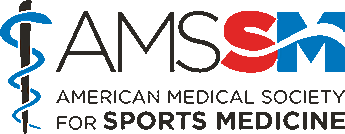|
ASK 5 THINGS: ABOUT CONCUSSION TREATMENT [Back]Concussion is defined as a traumatically induced transient disturbance of brain function. It is estimated that as many as 3.8 million concussions occur in the United States per year during competitive sports and recreational activities, but as many as 50 percent of the concussions may go unreported. Concussions occur in all sports with the highest incidence in football, hockey, rugby, soccer and basketball. Concussion remains a clinical diagnosis ideally made by a healthcare provider familiar with the athlete and knowledgeable in the recognition and evaluation of concussion (Excerpt from 2013 AMSSM Position Statement on Concussion in Sport). 1) When can I return to school or work? In regards to returning to school after a concussion, this depends on the severity of symptoms. Every concussion presents differently, and most physicians will have a discussion with the patient, parents or guardians regarding their school schedule, intensity of coursework, frequency and duration of computer and electronic usage in the classroom. In the past, it was common practice to rest a week or more before returning to full schoolwork, but we now know that staying away from school and social interaction can negatively affect recovery. Returning to school as soon as tolerated is recommended. Once symptoms are tolerable, it may be recommended to start with a half day of school with limited electronics and breaks every two or three hours, modified homework and tests and progress as tolerated to full days. Make sure to ask your physician to write specific recommendations and keep your follow-up appointments to aid in progressing successfully and safely back to school. In regards to work, this again depends on your severity of your symptoms. Physicians understand that in regards to work, it is very difficult to take too much time off for work, as there is an added stress of financial issues. It is best to be very specific with your physician regarding your work’s physical activity requirements (which might include lifting, driving, pushing, climbing, etc.). To formulate the best return-to-work plan, determine the intensity of your coursework/work duties, electronic and computer usage and work hours. The same recommendations apply as with returning to school, decreasing computer and electronic usage, taking breaks and scaling back the hours at work to start, followed by reducing the intensity of physical activity at work. 2) When can I drive? A large percentage of concussions include some component of slowed reaction time that can put a driver at risk for a car accident. In the initial days of a concussion, we recommend not driving until seen by your physician to discuss your symptoms, and he/she will give you final clearance to drive. If you have symptoms of dizziness, “slowed down”, fogginess, lightheadness, to name a few, it is recommended not to drive. Your doctor will most likely test your balance, coordination and possibly your reaction time with electronic concussion testing before giving you final clearance to operate a vehicle. 3) When can I start activity? Once you are symptom free for 24 hours, you can start activity. Most physicians follow the gradual return to activity over five days, depending on your activity level or sport. You will start with light activities and progress in intensity (if symptom-free) each day until you are at your full activity. If symptoms reoccur during your return to activity, it is recommended to rest 24 hours until symptoms are gone. For some patients in which symptoms last longer than two to three weeks, your physician may recommend light activity, even though you are not totally symptom-free. 4) What medications can I take? In the initial period of a concussion, we recommend acetaminophen every 6-8 hours as needed for symptoms, if allowed by your physician. NSAIDS (such as naproxen, ibuprofen and aspirin) are cautiously recommended because if there is a more severe injury that may not be detected immediately, such as increased brain bleeding, these medications can cause increased bleeding. With concussion and continued headaches, it is recommended to use acetaminophen and NSAIDs sparely, as they can cause rebound headaches (medication overuse headaches) that may be confused with headaches from a concussion. Your daily prescription medications can be taken unless your physician recommends stopping them. If you are having trouble falling asleep or staying asleep after a concussion, we do not recommend taking prescription or over-the-counter sleep aids unless prescribed to you before your concussion. In regards to supplements, melatonin 2mg-5mg taken 45-60 minutes before bed has been shown to improve headaches and sleep patterns in concussion patients. Physical therapy can help in many ways with concussion recovery. In regards to headaches, neck pain, shoulder stiffness and back pain stemming from a concussion, physical therapy can use different techniques with soft tissue, manual medicine and home exercises to help reduce these symptoms. If symptoms increase with head position changes, driving, dizziness, reading, electronics and/or balance issues, physical therapists can work with your vestibular (inner ear/balance) and eye coordination to help speed up recovery. In special cases where there are symptoms lasting more than 3-4 weeks, some physicians will prescribe a physical therapist who can take you through a treadmill exercise program that can help reduce symptoms. AMSSM Member Authors |

